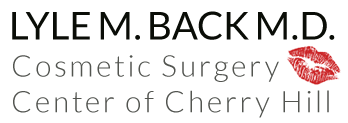Vitamins, Supplements, And Surgery – The Good, The Bad, And The Dangerous!
When you are just about to have surgery, any vitamins, supplements, herbs, or similar other over-the-counter substances that you may regularly take and are present in your system should only be of benefit…right? Well, not necessarily! Beware – there are supplements that can create serious trouble! A vitamin – dangerous? Yes, it can be!
The use of vitamins and supplements is so ordinary and so commonplace in our society today that most of us would not even consider them as “medications” let alone mentioning what we take to our doctors. It is a rare health questionnaire or form at the doctor’s office that would even have a section asking you about your supplement use. Yet, it is estimated that up to the 50% of adult patients today are regularly taking one or more supplements which might have major negative impact upon their upcoming surgical procedure. But how could this be – aren’t vitamins and supplements supposed to be safe to use and a healthy thing to do? Aren’t supplements of benefit during recovery or for healing? In fact, shouldn’t you be taking them both before and after surgery?
The problem is that while under ordinary circumstances vitamins and supplements are generally safe, there are some substances which can react poorly with anesthetic drugs, prolong bleeding and have other detrimental effects in the operating room and during the recovery process thereafter. Incredibly, some of the most popular “healthy” supplements can lead to completely undesirable effects such as poor healing, higher complication rates, and a prolonged or difficult recovery! But they are not all bad or dangerous; some are actually good.
The Good:
Daily Multivitamin without Vitamin E – general metabolic support
Arnica Montana – reduces swelling and bruising
Bromelain – reduces bruising and speeds healing
Vitamin C – boosts the immune system and speeds healing
Glutamine – supports and speeds healing
Lysine – natural “virus blocker”, limits cold sore outbreaks
Vitamin A – supports healing
Sports drinks – restore electrolytes, support hydration
Lactobacillus – limits risk for antibiotic associated colitis
Glucosamine/Chondroitin Sulfate – supports and strengthens joints and ligaments
The Bad (and potentially Dangerous):
Echinacea – interferes with certain anesthetic drugs and can depress the immune system (leading to higher infection rates); bleeding problems
Ephedra – problems with increased blood pressure under anesthesia
Gingko Biloba – increased bleeding, blood loss and post-op “hematomas”; abdominal cramps
Ginseng – increased bleeding and erratic blood sugar levels
Garlic – increased bleeding
St. John’s Wort – interferes with certain anesthetic drugs or can prolong their effects (leading to delayed “waking up”); constipation
Valerian Root – prolongs anesthetic effects, affects heart function and blood pressure
Kava – prolongs anesthetic effects, affects heart function and blood pressure
Fish Oil, Borage Oil, Vitamin E – increased bleeding and swelling problems
Zinc – delayed wound healing
Licorice Root – can create a potassium imbalance leading to cardiac dysfunction
Yohimbe – affects flood pressure and heart rate
Saw Palmetto – increased bleeding, decreased energy levels post-op
Bilberry – increased bleeding
Cayenne – increased bleeding
Dong quai – increased bleeding
Feverfew – increased bleeding
Ginger – increased bleeding and can interfere with cardiac medications
Red Clover – increased bleeding
Valerian – prolongs the effects of anesthetics and sedatives
Mafesian – cardiac dysfunction
Goldenseal – electrolyte imbalances
Milk Thistle – electrolyte imbalances
Stopping any potentially dangerous supplements at least two weeks before any procedure should be enough time to effectively clear them from your system and eliminate their dangers.
Whether it is a seemingly simple office procedure (like Botox or mole removal) or a major surgery in the operating room, your surgeon needs your help to get you a speedy, simple and uncomplicated recovery. Fill your physician in on the supplements you take so that you can get the best care possible. Check with your doctor – supplements can be helpful or possibly harmful. Get the right advice for a safe, smooth procedure and recovery.
Dr. Lyle Back is originally from New York City, receiving his medical and surgical training at Rutgers Medical School, Cooper Hospital – University Medical Center, and Ohio State. He is Board Certified in General Surgery (ABS) and Plastic Surgery (ABPS). He is a Fellow of the American College of Surgeons (ACS), the American Academy of Cosmetic Surgery (AACS), and a longstanding member of the premier American Society of Plastic Surgeons (ASPS). He served as a Professor of Plastic Surgery at Temple University and St. Christopher’s Hospital for Children and performed reconstructive surgery with “Operation Smile” in Vietnam. He specializes in the full range of the most modern and state of the art cosmetic surgery procedures for the body and non-surgical cosmetic enhancement techniques available today.
Article Source: http://EzineArticles.com/6369229
